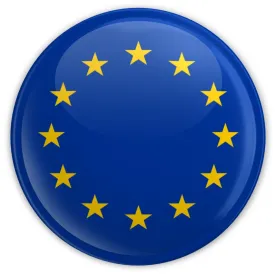Brussels Attacks set the tone for the Council JHA prioritiesThe Brussels terrorist attacks of March 22 have shaped the EU policy narrative on Justice and Home Affairs, notably at the Council of Ministers and in key Member States. On March 24, the EU Ministers for Justice and Home affairs issued a Joint Statement on the attacks. The statement sets out 10 priorities to enhance EU Member States’ collective ability to combat terrorism, including, among others: adopting the Passenger Name Record Directive in April 2016; completing a legislative package to combat terrorism (including Schengen controls); and enhancing cooperation with third countries with regard to digital evidence. Meanwhile, Belgium has moved swiftly to introduce new data retention laws and proposals to grant intelligence agencies greater freedoms to hack extremist groups online and eavesdrop on cross-border communications. Digital Single Market PolicyOn March 4, 2016, the Commission met with civil society and IT companies from Member States to discuss ways to combat online hate speech (see meeting summary here). The Commission wants to create a code of conduct for IT firms to improve the way they respond to hate speech online. At the meeting, they discussed finding a common understanding on the type of material that is a public incitement to hatred or violence, and target benchmarks for the time to review and take down the offensive material. The Commission seeks to finalize this code of conduct by June. On March 17, 2016, the European Parliament’s Committee on Civil Liberties, Justice and Home Affairs (“LIBE Committee”) held a public hearing on the “EU-U.S. Privacy Shield”, a new framework for transatlantic data flows that was announced in early February - see the framework text here. Compliance remains voluntary for U.S. companies, and the precise nature of the framework and obligations are still largely unknown. The Privacy Shield must now be approved in the EU under the “comitology” procedure, likely in early summer 2016. Under this procedure, the Article 29 Working Group will provide a non-binding opinion on the proposal, which is expected by April 13. The procedure also calls for a binding opinion by a qualified majority of the Article 31 Committee, and the formal adoption of the adequacy decision by the EU College of Commissioners. Once the Framework is approved, the U.S. Department of Commerce has stated that it will be delivered to the Federal Register for publication within 30 days. For an agenda of the LIBE public hearing, see here; for the video, see here. On March 18, 2016, the Competition Commissioner, Margrethe Vestager, published her initial findings on geo-blocking, as part of the ongoing e-commerce sector inquiry. Geo-blocking refers to restrictions placed on access to online services and content on a geographic basis. The Commission concluded that there may be legitimate reasons to geo-block, but geo-blocking might not be systematically required to the same extent by all rights holders. There appear to be large differences in both the extent to which geo-blocking takes place in different Member States, and the extent to which different types of operators implement geo-blocking in relation to different categories of digital content. According to the Commission, the Preliminary Report in the e-commerce sector inquiry is due to be published in mid-2016. This will be followed by a public consultation. The Final Report is scheduled for publication in early 2017. Energy and Climate Change PolicyOn March 17, 2016, the Commission presented a proposal for a Regulation laying down rules on the making available on the market of CE marked fertilizing products, amending Regulations (EC) 1069/2009 and 1107/2009. The proposal provides rules for free movement of all CE-marked fertilizer products across the EU; updates the current requirements for inorganic fertilizers; and introduces new harmonized requirements regarding quality, safety and labelling. The proposal has two objectives. First, in line with the Commission’s Circular Economy Package, the proposal’s main objective is to incentivise large scale EU production of innovative fertilizers from domestic organic or secondary raw materials. It proposes a regulatory framework radically easing access to the internal market for such fertilisers, thereby levelling their playing field with that of mined or chemical fertilisers. Second, the proposal aims at introducing harmonised cadmium limits for phosphate fertilisers. It proposes specific cadmium limits for different phosphate fertilizers. The draft Regulation has been sent to the European Parliament and Council for adoption. For the press release, see here. Interested parties may submit comments on the proposal through the following link until May 12, 2016. Internal Market and Financial Services PoliciesOn March 8, 2016, the European Commission announced a targeted revision of the 1996 Posting of Workers Directive. The Commission has proposed several changes, including: placing posted and local workers under the same (national or local) rules on rates of pay; applying mandatory universal collective agreements for posted workers in all economic sectors; and allowing Member States to apply the revised Directive to sub-contracting claims in addition to contracting claims. Additionally, the revision applies the principle of equal treatment on temporary posted agency workers, as well as local temporary agency workers, thus filling a gap in the current Directive. The proposed revision also places long-term postings (greater than two years) under mandatory rules of protection under labor law in the host Member State. For the press release, see here. For the Commission’s explanation, see here. For the proposal, see here. On March 16, 2016, the Commission published a Communication laying out policy measures to support the European steel sector in the scope of short- and long-term challenges. The Communication sets out various measures, including, among others: adopting additional anti-dumping measures against unfair trade practices; cooperating on a bilateral and multilateral level to tackle the causes of global overcapacity (as to which, see further Section 7, below); investing at both a private and public level, including the European Fund for Strategic Investments, EU Structural and Investment Funds, and Horizon 2020 (the EU research funding program). Life Sciences and Healthcare PoliciesOn March 2, 2016, the European Medicines Agency (“EMA”) published guidance on the Agency’s proactive disclosure policy for clinical reports, known as Policy 0070 (see here). The EMA adopted Policy 0070 in October 2014; this stated that the EMA will proactively publish clinical reports on its website following the approval of medicines. In line with this Policy, the EMA expects to publish the first wave of clinical reports in September 2016. This guidance focuses on: the overall procedural aspects of submitting clinical reports; anonymization of clinical reports to ensure no personal data of trial participants is published; and the identification and redaction of commercially confidential information (CCI) in clinical reports. On March 17, 2016, the European Commission published its Report on the Sustainable Use of Biocides, in light of the Commission’s obligation in the Biocidal Products Regulation of 2012 (available here) to present a Report on how the Regulation contributes to the sustainable use of biocidal products. The Report underscores the important contributions of the Regulation, and outlines how the text, for the most part, adequately addresses the main objectives. The Commission further urges Member States to concentrate their efforts and resources on substance approval and product authorization, as well as to invest additional resources on enforcement activities to ensure that no product is illegally placed on the market without proper labeling. Trade Policy and SanctionsOn March 10, 2016, the EU-China “Steel Contact Group” met in Beijing to discuss causes and potential solutions to the crisis facing the steel sector. The goal was to find solutions to the problem of overcapacity of steel on the market, focusing on the state of play of capacity reduction, the newly adopted capacity reduction targets, subsidization policies, and the behavior and financing of state owned steel enterprises. However, the Commission admits that “significant work remains to be done”, and both parties have agreed to “intensify the dialogue”. On March 21, 2016, the Commission adopted a proposal to relocate people in need of international protection between Turkey and the EU. The proposal amends the Council Decision of September 2015 (see here) to make the 54,000 previously agreed places for asylum-seekers available for the purpose of resettling Syrians from Turkey to the EU. This is designed to serve as part of a scheme to offset “irregular” flows of migrants from Turkey into Greece with Syrian asylum-seekers who have not crossed from Turkey into Greece in an “irregular” manner. Since April 4, some “irregular” migrants that have crossed from Turkey into Greece since March 20 have been sent back to Turkey. This proposal was adopted in the context of the Commission’s publication on March 16 of the first report on relocation and resettlement (see here) and a Communication setting out six principles for further developing EU-Turkey cooperation in tackling the migration crisis, with a focus on Italy and Greece (see here). On March 29, 2016, the World Trade Organization issued a panel report regarding EU duties on biodiesel from Argentina. As part of the dispute, Argentina challenged certain aspects of the anti-dumping measures imposed by the European Union on imports of biodiesel from Argentina. The panel report recommended that the EU bring the relevant measures into conformity with its obligations under the Anti-Dumping Agreement and the GATT 1994. The panel stopped shy of placing an obligation, as such, on the EU to withdraw the measures in dispute. For a press release, see here. For the full panel report, see here. Erika Mann is co-author of this article. |
EU Policy Update -- 14, April 2016
Tuesday, April 12, 2016
Current Public Notices
Published: 28 August, 2025
Published: 25 August, 2025
Published: 25 August, 2025
Published: 25 August, 2025
Published: 25 August, 2025
Published: 22 August, 2025
Published: 20 August, 2025
Published: 20 August, 2025
Published: 18 August, 2025
Published: 18 August, 2025
Published: 15 August, 2025
Published: 14 August, 2025
Published: 12 August, 2025
Published: 11 August, 2025
Published: 8 August, 2025







 />i
/>i
